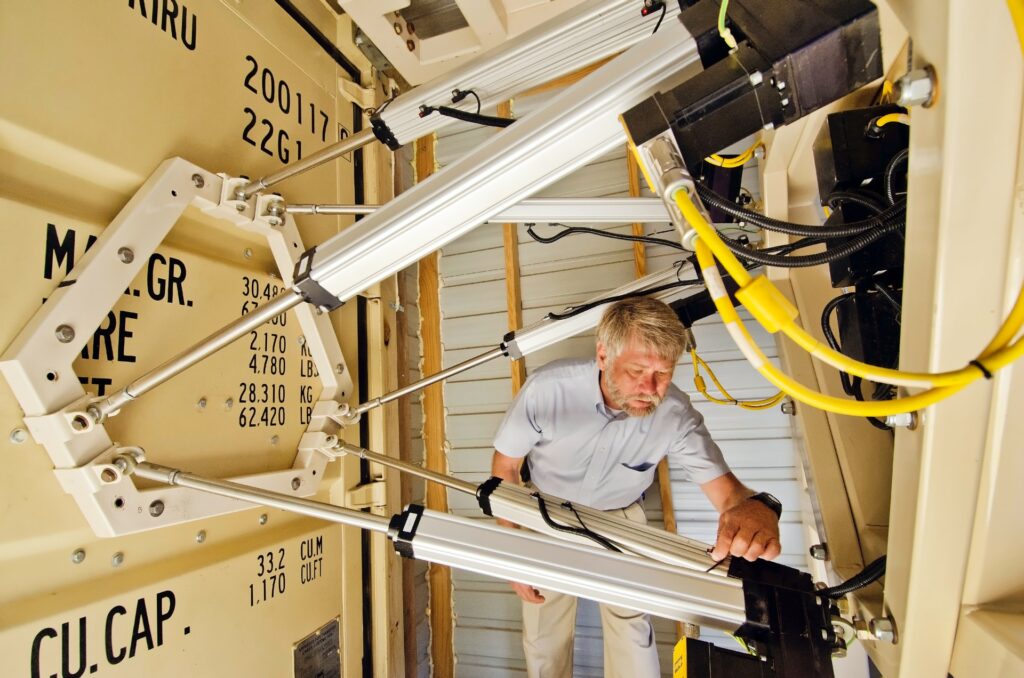What is Civil Engineering?
Civil engineering is a professional engineering branch that focuses on the planning, maintenance and construction of the naturally and physically built world, including public works such as bridges, canals, airports, dams, roads, pipelines, railways sewerage systems and the structural components of buildings. It is considered the second-oldest engineering field after military engineering, and it was created to separate non-military engineering from military engineering.

Bridges and buildings usually come to mind when referring to the first structures to be constructed, this is because they are the obvious inventions of structural engineering, this is one of civil engineering’s most popular sub-categories. Airports, subway systems, roads, and railroads are created by transportation engineers, this is another sub-discipline of civil engineering.
Each time you turn on a water faucet, you imagine water would flow, we do this without even realizing that civil engineers made this happen. The water supply systems in New York City is one of the world’s most fascinating. Billions of gallons of water are passed through this system all the way from the Catskills to hundreds of miles away, and this water is of very high-quality.
In the public sector from municipal through to national governments is where civil engineering takes place, and from individual property owners to international companies is where it takes place in the private sector
History of Civil Engineering
Civil engineering is applying scientific and physical principles to solve the problems society has, the history of civil engineering is precisely linked to progression in the understanding of mathematics and physics. However, it is difficult to determine the emergence and beginning of civil engineering. This is because the history of civil engineering is a mirror of the history of human beings on this earth.
Artisans carried out most architectural design and construction in medieval and ancient history , these consisted of occupations such as carpenters and stonemasons advancing to the role of head builder. Infrastructure, roads and structures that were being built were monotonous, and increases in scale were huge.
Dating back to the 3rd century BC, this work by the Archimedes including Archimedes Principle, which supports our understanding of practical solutions and buoyancy, such as Archimedes’ screw is one of the first example of using a scientific approach to mathematical and physical problems. An Indian mathematician called Brahmagupta, used mathematics in the 7th century AD, this was derived from Hindu-Arabic numbers, used in excavation (volume) computations.

Until recently, the terms civil engineering and architecture held no real differences, that meant they were sometimes used synonymously .The 18th century marked the first time that the term civil engineering was used individually from the phrase military engineering.
Norwich University which was distinguished in the year 1819 was the first private college in the USA to involve civil engineering as a separate course (discipline). Therefore, civil engineering societies could then be formed in the USA and European countries, this happened later on in the 19th century, it then grew in popularity and was established in other countries during the 20th century. The first national engineering society was called the American Society of Civil Engineers and was formed in the United States. It was established in 1852, and had members associated to the civil engineering profession located globally. Worldwide, the number of colleges/universities that now consider and have civil engineering as a whole singular discipline have risen enormously during the 19th and the 20th centuries, this is a clear indication of the importance of this type of engineering.
Civil Engineering Education
Aspiring civil engineers can find a list of approved programs at the Accreditation Board for Engineering and Technology (ABET) for , as schools with this particular certification have been examined and meet all quality standards for the profession. High school students may consider advanced courses in mathematics, such as calculus and trigonometry, to prepare for college.
Civil engineers generally begin their college careers by enrolling in chemistry, physics, and advanced mathematics courses. . Typical classes include:
- Introduction to civil engineering
- Fluid mechanics and hydraulics
- Structural analysis
- Structural design
- Structural dynamics
- Materials engineering
- Geotechnical engineering
- Transportation engineering
Some programs may include classes in Computer-Aided Design (CAD) as part of the core requirements. Additionally, students can do courses in engineering statistics to enhance their computational skills. Pre-major degrees can also include core engineering concepts and principles.
On completion core degree program requirements, individuals studying civil engineering dive into more advanced subjects for example statistics, thermodynamics, structural analysis, and engineering mechanics and systems. Courses most likely will need to include the conclusion of a design project, whereby the individuals will examine structural integrity of materials. They more than likely will require CAD programs to run and examine their designs.
Civil Engineering Careers
Civil engineers are very versatile in their working locations and conditions. When designing, civil engineers usually spend their time mostly indoors at computers in offices. That being said,, construction engineers can spend most of their time outdoors overseeing operations at construction sites, and/or troubleshooting problems onsite. There are also projects that require frequent relocation to different offices and site trailers.
Jobs
Civil engineers work on challenging jobs, and job satisfaction for them can be very high when the project that they have lead reaches completion. They typically hold a specialization in one or more of these several areas:
Construction engineers lead and guide construction jobs, making that they are run and created in compliance with the specifications and plans. Civil engineers are usually in control of the safety of temporary structures and their designs during the construction period. They may also oversee time-management, communications and budgetary aspects of a job.
Geotechnical engineers ensure that the foundations for built structures varying from dams and runways to buildings and streets are strong and solid. Their main focus is on how structures that are created by civil engineers, such as tunnels and buildings, integrate with the earth (including rock and soil). Additionally, they create and design for tunnels, slopes, and retaining walls.
Structural engineers create, assess and plan for huge projects, such as dams, buildings and bridges, to make sure that they are strong enough and also possess the recommended durability.

Transportation engineers propose, create, run, and oversee everyday operations, such as roads and highways, however they can also design bigger jobs, such as harbors, mass transit systems, ship ports and airports.
The work of an environmental engineer is very similar to the work of civil engineers.
Salaries
An entry-level civil engineer that has just under 1 year experience can expect to be earning an average pay (including bonus, and overtime pay) of $57,210. An early career civil engineer that holds 1-4 years of experience receives an average total pay of $61,853. A mid-career civil engineer that holds 5-9 years of experience receives an average total pay of $73,943. A higher level experienced civil engineer that holds 10-19 years of experience receives an average total compensation of $85,777. In their late career (20 years and higher), employees receive an average total compensation of $97,283.
The highest response for ‘civil engineer’ for a job title are from companies such as Stantec, Jacobs Engineering Group Inc and Aecom Corporation. Salaries are highest reported at WSP Global Inc. where the pay is averaged at $73,916. Other companies that pay large salaries for this role such as Jacobs Engineering Group Inc and Stantec, earning around $73,653 and $72,239. Michael Baker Corporation pays the lowest at around $62,074. Aecom Corporation and HDR, Inc. also pay on the lower end of the scale, paying $67,505 and $67,716, respectively, according to PayScale.com.
What do Civil Engineers Do?
Civil engineers create, improve and protect the environment in which we live. They design, plan and oversee maintenance and construction of building structures and infrastructure, such as railways, airports, roads, bridges, harbors, irrigation projects, dams, power plants, and water and sewerage systems. They also design and build tall buildings and large structures that can withstand all weather conditions.
Responsibilities
Job responsibilities of a civil engineer include:
- Examine job sites to record progress and make sure engineers conform to the specifications of design and follow the safety and sanitation guidlines.
- Inspect facilities or sites to determine if they meet specifications or standards.
- Engineer or plan systems to efficiently dispose of chemical, biological, or other toxic wastes.
- Design systems to reduce harmful emissions.
- Calculate grade and load specifications, material stress factors, water flow rates, to decide design requirements.
- Estimate technical or resource requirements for development or production projects.
- Supply technical support to managerial or industrial personnel about construction, design or project changes or repairs.
- Recommend technical design or process changes to improve efficiency, quality, or performance.
- Examine materials or soils to ensure the capability and vigor of steel, asphalt, concrete or foundations.
- Test characteristics of materials or structures.
- Run and lead the maintenance, operations and/or construction at the job site.
- Direct construction activities.
- Run or join in completing a survey to plan installation and figure out elevations, grades and reference points to lead construction.
- Survey land or bodies of water to measure or determine features.

Skills
Civil engineers can find themselves to have a vast amount of career opportunities open to them if they obtain proper qualifications, experience, and training, even in this highly competitive world of engineering. . These individuals are skilled highly, they utilize their vast array of knowledge to develop very successful careers in both the private and public sectors. For entry-level civil engineers, or for individuals that are seeking to further their career, it’s important to hold a strong grasp of the critical skills that are a necessity for civil engineers in todays world.
Some of these skills include:
- Technical training
- Oral communication skills
- Written communication skills
- Problem solving
- Leadership skills
- Organizational skills
- Mathematical skills
- Decision making
While technology advances and the needs of an ever growing population evolves, civil engineers need to make sure that they too advance and strengthen their skill set, not only that but they also need to develop new ones. With every new and advanced skill that civil engineers obtain this could aid them to land their dream job, or even a senior managerial role within their existing organization.
Future of Civil Engineering
Transportation engineering is an area of civil engineering that focuses on the required infrastructures to transfer goods and people around. With the invention of semi-autonomous and electric vehicles for example the creations of Tesla, highways and smaller roads will need to be adapted to the self-driving vehicles.
Structural engineering is another area in civil engineering, an area that is also seeing huge modifications due to highly technical progression in the area. The future progression of structural engineering may mean that the outcome for structural engineers is that they would be made entirely redundant. This is because of the progression in computer modelling that would allow the generation of highly intricate machines via AI without the aid of humans.
Artificial intelligence also know as its abbreviation AI, entails of machines/robots educating themselves by learning from previous events. Some worldwide known examples of AI consists of self-driving cars and also chess-playing computers. AI can also be used in other industries such as the construction industry, AI is very powerful and has opportunity to work instead of humans, this would take away tasks that would usually be the responsibilities of younger engineers.

Nanotechnology is the examination of materials that are 0.1 to 100 nano-meters in size. It is a discipline that has been founded in the past several decades and has a large variety of applications across numerous fields, this includes civil engineering. Investments have been made by corporations and venture capitalists in the steel and concrete used to build structures, and this is just in the construction industry.
If you have anything to add, please feel free to leave a comment down below, and sign up to our newsletter for more of the same content!



